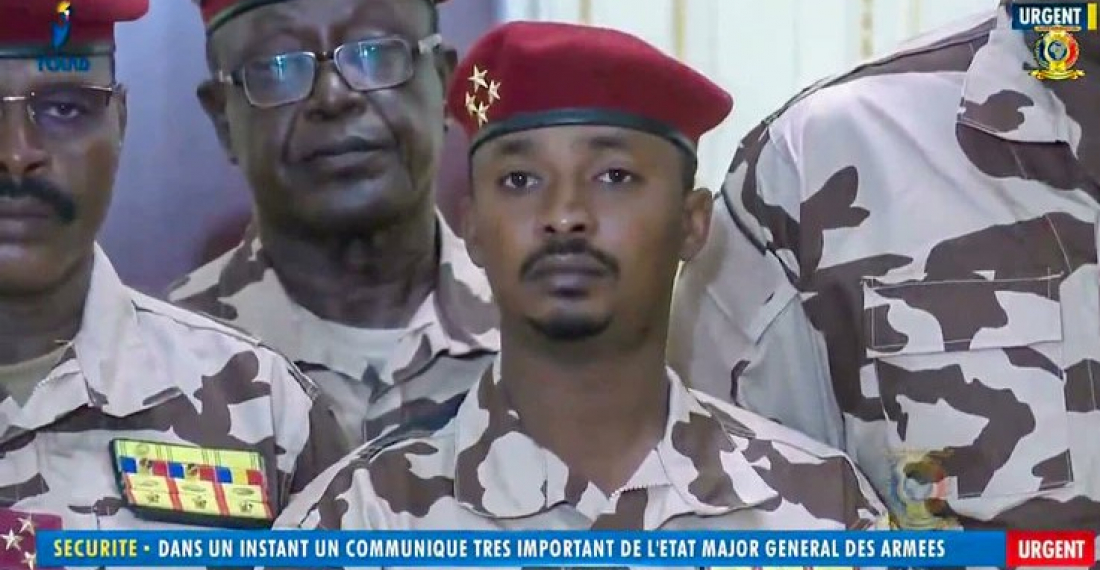The situation in Chad remains tense following the shock announcement of the death of President Idriss Déby on Tuesday (20 April). He was reported killed while fighting against rebels who have been on the move since in the last days. Déby was a close ally for France and had ruled the country for around 30 years. Déby was heading for his sixth term as president after leading in the presidential elections held earlier this month.
His son, General Mahamat Idriss Déby announced on Wednesday that he will take over as interim president under a transitional arrangement. Both parliament and government have been dissolved. A military council is formed to run the country's affairs for 18 months.
Opposition forces and armed movements rejected the formation of a military council and said that they would continue their march towards the capital. Various opposition groups voiced their concern against a regime they described as a dictatorship. The main rebel group, Front for Change and Concord in Chad (FACT) vowed to take over the capital, N'Djamena. Fighting has been ongoing throughout this week with reports that the deaths are in hundreds.
Neighbouring countries expressed concern about possible unrest. Sudan and Algeria immediately called for calm while the African Commission, the European Union and the United States have called for a peaceful transfer of power in Chad in accordance with the Constitution and elections.
Unrest could directly affect southern Libya which is poorly governed due divisions inside the country and its tribal structure. Many Libyan tribes have connections with kinsmen in Chad. It is believed that many Chadian rebels organised and mobilised in southern Libya before entering Chad for operations. The Sahel region could also see dangerous ramifications from the evolving and unstable situation in Chad, as the government's counterterrorism efforts could be weakened. Many terrorist groups are already on the offensive around Lake Chad and the wider Sahel region.







